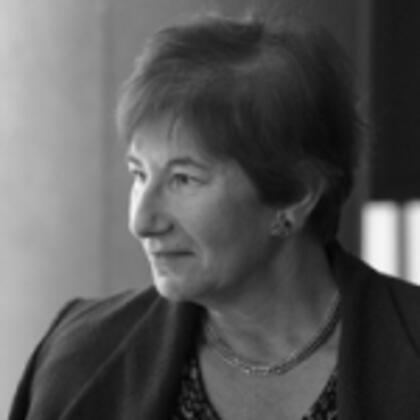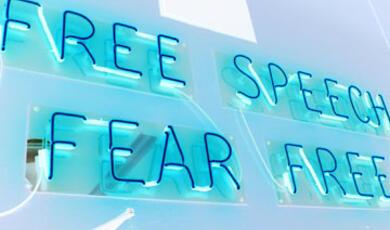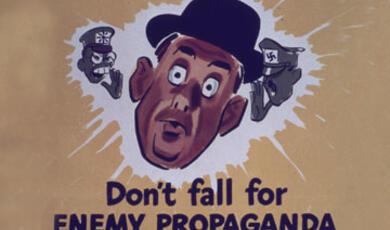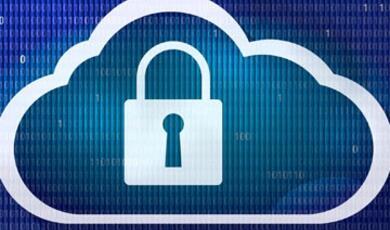The BBC - Protecting it from the Government
Share
- Details
- Text
- Audio
- Downloads
- Extra Reading
For 80 years the BBC Governors were charged with regulating the BBC and representing the interests of the licence fee payers. The Governors appointed the Director-General, approved strategy, oversaw complaints and were accountable to Parliament. Did they fail in their task when, in the wake of the Hutton Report into the circumstances surrounding the death of Dr David Kelly, the Chairman, the Director-General and the broadcaster Andrew Gilligan left their posts in 2004? The governance of the BBC has to ensure that the management deliver impartiality and accuracy without concern for any government agenda.
Download Text
11 April 2012
The BBC:
Protecting it from The Government
The Baroness Deech of Cumnor
In my last two lectures I explored how the regulated community may be overregulated when its products are of use to the government, or electorally attractive, or at the other extreme, neglected if there is fear and money in the mixture and a measure of misunderstanding. This time we look at another subject of national interest and importance, another area where Britain is one of the best in the world, and how government interference for its own ends might come close to destabilising or lowering its standards.
The last year has seen enormous interest in the power of the media, whether it is superinjunctions, or phone hacking in the interests of reporting, or excess ownership in the field. Once again, the answer may be more regulation or more powerful regulation, but it would be a pity if there were a rush to control the news outlets without regard for the equally important ends of investigation and reporting. The Daily Telegraph won praise for its exposure of MPs’ misuse of their expenses; Wikileaks won praise in some quarters for revealing what diplomats really thought. In both cases some underhand methods were used. But where underhand investigative journalism throws up issues that it is in the public interest to know about, it is not condemned, far from it, for example the recent exposures of poor care in care homes and cash offered by donors in return for meeting the Prime Minister.
In 2004 the dominant media story was how the BBC reported the run up to the Iraq war, intelligence reporting and the Hutton Inquiry. I would like to illustrate the problems of regulation and governance by examining the details of the so called Kelly affair. I was a BBC Governor at the time but nothing I am telling you has not been in the public domain. It was an enormously important story which has still not ended, and has engendered the Butler Inquiry and the Chilcot Inquiry, which has run since mid 2009 and cost (at March 2011) £4.7m. It takes that much to get at the truth, and this should be remembered when there is criticism of exactly what the reporter at the centre of the case, Andrew Gilligan, said early one morning on Radio 4. The story threw up subsidiary elements, such as whether we were right to go to war against Iraq, whether Blair and Bush misled the people about the nature of the imminent threat, whether Madrid was bombed as a result of that decision, whether it was wise to base the war decision and its presentation to the public as an issue of WMD, whether the evidence backing the claims of danger to the UK was exaggerated or incorrect, whether our national interests demand that we should go to war in heavily conflicted countries at all; how the intelligence services work and how they, 10 Downing St and PR interrelate; the editorial control that is appropriate over a breaking news story; what is an important story, the responsibility of journalists and their overseers to the public, and whether it is different in the printed press, and above all, the importance of freedom to broadcast.
One may wonder what all the fuss was about an interview on one radio programme early in the morning, but when I tell you that that programme is listened to by 7m adults each weekday morning, (more than 10% of the population and probably 25% of all adults) and prides itself on shaping the agenda for political discussion that day, you may comprehend it. Moreover, we are talking Public Service Broadcasting, that is the production of programmes that would not emerge through the ordinary commercial environment and which are considered desirable for social and cultural reasons. PSB represents what the entire UK says it wants from TV and radio, as citizens, for local communities and in support of diversity. Competition in other media outlets may be good for quality but not for the range of programmes. PSB tries to combine the popular and the good in programming. Lord Reith, the founder and first Director General, said “Very few people know what they want and still fewer know what they need.” The BBC represents the repository of institutional values, culture and UK creativity. UK music, both classical and popular, is very dependent on it; it has moulded culture as a patron and provider, influenced politics immeasurably, sponsored charity, kept sport alive, provided education for the masses and preserved current history.
Lord Reith was responsible for developing the principle that the BBC exists to enrich people’s lives with programmes which inform, educate and entertain. It was founded on the principle of providing high quality public services for everyone, free from commercial, political or other interests. Unlike commercial broadcasters, the unique way it is paid for and governed means it is owned by the British people and accountable to them. The BBC was founded according to three public principles which are common to many other staples of the nation’s public life – the health and education systems, public parks, museums and libraries: universality – it is for everyone and should be available to everyone; fairness and equity – because it is held in common it should fairly reflect the needs and interests of all its different users; accountability – collective ownership confers on the British public the right of collective accountability and the power to monitor the performance and guide the future of the BBC through civic institutions. The contribution to the quality of life in the UK made by the BBC is known as “public value” – value to people as individuals, to society as a whole by contributing to the wider social, democratic and cultural health of the nation through the range and quality of its broadcasting and on line services; and it impacts on the performance of the wider commercial media market by the standards it sets, the training it gives to so many media people and creative investment in British production. Beware the political party that tries to tangle with it or stifle it by over regulation.
I would like to explain the role of regulation in the rise and influence of broadcasting and why Britain chose to organise it through a particular national institution, the BBC and its governors. It is a great national organisation, one of the constitutional pillars of British society; and those in its sphere claim it to be the best in the world.
A little history. In 1896 the first British wireless patent was granted to Marconi and in 1901 he transmitted the first transatlantic wireless messages. When he died in 1937 2 minutes’ silence was observed on all BBC stations. Marconi only thought of wireless as a point-to-point communication, not as broadcasting, a communal exchange activity (compare our growth of understanding of the possibilities of the internet today.)
From the beginning broadcasting in the UK was international and controlled. An act of Parliament in 1869 gave power to a civil servant, the Postmaster General, to control telegraphs, and in 1904 this was extended to wireless telephony. In 1905 the first printed licence was issued by the Post Office, of which there were 942 such in 1913, to those with scientific qualifications. There were 405 licensed transmitting stations, and advertising was rejected until the 1950s. “Broadcasting” to all started as such in Chelmsford in 1920, when Dame Nellie Melba sang a song heard all over Europe. She performed some arias and sang God Save the King.
UK regular broadcasting started in 1922 when there was a meeting of all the companies to set up the British Broadcasting Company. The first general manager was John (later Lord) Reith. This man and his principles were of the most profound and lasting significance. Reith regarded radio as a national moral asset, contrasting it favourably with the US profit driven system. He believed in broadcasting for a more intelligent and enlightened electorate. He was positive about religion and education, and saw broadcasting as being a “servant of culture”. He wanted no concessions to the vulgar. He believed one should not underestimate the mentality of the public. He saw it as a public service: “our responsibility is to carry into the greatest possible number of homes everything that is best in every department of human knowledge, endeavour or achievement.”
Listeners had to pay 10 shillings for licences. The BBC very quickly acquired corporate identity and by 1927 was a recognised power in the state as well as in society. National advisory committees and a listeners’ association were set up and in 1923 the Radio Times commenced publication. There was early reliance on serious music and live orchestras, not recorded music. 1924 saw the first political speech and the first royal broadcast, from King George V. Announcers on the radio wore dinner jackets in the evening and were given a dress allowance. There were no women news announcers in case they had to read out bad news, which could upset them! There were 4-5 minutes of silence between each of the early programmes so that the listeners could ponder what they had heard. The BBC took its responsibility to the language very seriously, and set about creating “received pronunciation” with the aid of a committee on correct usage headed by George Bernard Shaw, which had Alistair Cooke as one of its members. There was an air of paternalism about broadcasting and national agreement that it was a public, not a commercial service. The flagship headquarters, Broadcasting House in Portland Place, reflects that vision in its design, by G. Val Myer, with carvings by Eric Gill, notably of Prospero and Ariel. It is a listed building of great significance and pride; there is now to be a glass extension, opening this year, architects Sheppard Robson. There are other offices in West London, Salford and in the regions.
Broadcasting was given a significant political boost by virtue of the occurrence of the General Strike in 1926. Although the press stopped, BBC News continued and became a public institution. The end of the strike was announced by Reith himself on air. TV started in 1936. “The word is half Latin and half Greek – no good can come of it”, said Scott of the Guardian. It really took off in 1953 with the desire to view the Coronation.
The first international broadcast was in 1932. It was realised that the BBC had the capacity to fulfil a role on the world stage through broadcasting, and the World Service could well be said to cause the UK to punch above its weight. It has global reach. King George V made his first Christmas broadcast to the Empire in 1932 and King Edward VIII his famous abdication speech in 1936, declaring his inability to continue to rule without the support of the woman he loved, Wallis Simpson.
What is the BBC’s governance? From the start there has been independent funding via the licence fee, which is not income tax, and independent control was founded on the Board of Governors, now the Trust. It is always under attack, especially when Charter Renewal comes around every 10 years, or when the licence fee is raised. It is currently £145.50 and frozen for a few years. Many grumble about the amount, but it is less than the minimum Sky annual subscription, and includes the website (used by 20m) and of course radio as well as TV. Others say that they do not want to watch BBC and object to having to support it. The answer to that it is a national service, rather like, say, education, and even if one does not avail oneself of it, others in the family will and it is to everybody’s benefit that it is there. Moreover the licence supports other activities such as the Proms and educational aid. It is the least worst funding system of all the alternatives.
The Charter gave the Governors, now the Trustees, the power to run broadcasting in the public interest, to appoint the Director-General and the Board of Management that is responsible for the running of day-to-day activities. The Governors, now the Trustees, were also responsible for ensuring that the strategy of the BBC was appropriate, that management complied with the law and that services met the public interest and provided public value in return for the £3.5bn approx. licence fee income (total income £5bn). The Trust ensures that the BBC is accountable to the public. The Governors, now the Trustees, are in part a company board and in part regulators. Political impartiality remains solely the Trust’s responsibility, not Ofcom’s (a new regulatory board set up in 2003, which monitors taste and decency for the BBC, independent production and regional quotas, and economic regulation, that is fair trade and competition policy.)
Political impartiality has always been a bedrock of the Governors’ authority and there have been many occasions in the recent past when the value of having a completely independent Board (which used to be the good and the great, and quite rightly so because they were experienced individuals from right across the national spectrum who were unsackable and had nothing to lose. I hope the appointment of Lord Patten marks a return to the big beast mode.) The Trust has to ensure that the BBC provides VFM for the licence fee payer, cuts waste, reduces management costs and shifts resources to production. Their Annual Report goes to the Parliamentary Select Committee on Culture Media & Sport for scrutiny and they comment on it.
Most notably in the case of Iraq, the BBC’s impartiality is often under attack. Some said it put out too much antiwar propaganda, others said insufficient. The party in power usually indicates that the BBC treats it as weak and losers. Many are the voices that claim it is biased in its treatment of Israel and unbalanced in too little coverage of other Middle East countries until very recently. It is now alleged to be too green. The fact that the BBC’s coverage is attacked by everybody does not mean it is in the right, but it does force the BBC to keep trying. It has itself commendably occasionally commissioned outside experts to assess its impartiality on various issues, for example, the coverage of the EU and of Israel. Nevertheless the public trusts the BBC most for domestic and international news, more than other stations or the politicians or the press. 69% of the public regard the BBC as trustworthy according to the latest poll, which the BBC conducts annually. But trust should not be confused with factual accuracy. Just because the brand attracts trust does not mean that it gets its facts right and, indeed, the public would usually not know if it had got them wrong. The BBC tries to avoid bias by being conscious of the pitfalls, by training, editorial guidelines and external assessment.
Both the Governors and the trustees, especially the former, were under the spotlight and their role contested. Whether Governors or trustees, their most important role is arguably to appoint the DG (currently Mark Thompson, formerly Greg Dyke). Neither the chairman (now Lord Patten, and previously in my time Sir Michael Lyons, Lord Grade and Gavyn Davies) nor the governors/trustees are directly responsible themselves for actually running the broadcasting services. They set high level objectives and the strategy, and are charged with ensuring that management complies with the editorial guidelines and with legal and regulatory requirements. The DG is editor in chief of the BBC and is responsible for the day-to-day running of it. There are about 23,000 staff.
What follows is a story about investigative journalism, the ability to carry it out, how it should be supervised, and how much those who are being investigated dislike it and try to curb it with all legal and political means to hand. Dr David Kelly was a scientist who was an expert in chemical and biological warfare and was employed by the government to advise it on weapons in such warfare. On 24 September 2002 the government issued a dossier on Iraq’s WMD which included a statement that Saddam Hussein’s military planning allowed for some of those weapons to be ready within 45 minutes of an order to use them (the meaning of which is ambiguous, including the type of weapon.) On 7 May 2003, Susan Watts, science editor of the BBC Newsnight programme had a telephone conversation with Dr Kelly during which they discussed the 45 minute reference in the September dossier. She spoke to him again on 30 May. On 22 May Dr Kelly had a meeting with a BBC defence reporter called Andrew Gilligan.
On 29 May at 6.07 am on the Today programme Gilligan reported that he had been told by “one of the senior officials in charge of drawing up the September dossier that the government probably knew the 45 minute figure was wrong even before it decided to put it in” and that “Downing Street, a week before publication, ordered it to be sexed up, to be made more exciting and ordered more facts to be discovered.” The context of this was the scepticism and apathy of the public about the nature of the Iraq threat and the government’s belief that the public needed to be persuaded that a threat to the West was imminent, although, it is alleged, Tony Blair the PM was already committed, regardless of WMD, to follow the Bush lead, and also by his moral convictions that Saddam had to be removed because of the harm he had done to his own people. After the Gilligan comment, the Downing Street press office had issued a strenuous denial of his report, claiming that the entire dossier was the work of the intelligence services. Later on the programme, the Armed Forces Minister denied the truth of the allegation that the dossier had been sent to No. 10, deemed too weak, and then sent back to be sexed up (a phrase that has entered the English language with a bang . . .) Gilligan returned to the Today programme to have the denial put to him, and was asked whether the dossier was not the work of the intelligence agencies. Gilligan said: “No. The information which I’m told was dubious did come from the agencies, but they were unhappy about it, because they didn’t think it should have been in there. They thought it was – it was not corroborated sufficiently, and they actually thought it was wrong.”
Gilligan was neither the first nor by any means the last reporter to question the strength of the government’s prewar claims about WMD. The allegations continued. Gavin Hewitt reported on TV news that night that he had been told by someone who had been consulted on the dossier that some material was put in and taken out at the last minute, and some spin from No. 10 had come into play. On Newsnight on 2 and 4 June, Susan Watts reported that a “senior official” had said that the information had got out of proportion, and that the emphasis on the 45 minute assessment went too far. It had become a critical part of the government’s case for war. The reports by Gilligan and Watts were very alike and the press had already made similar allegations about the role of No. 10 in the preparation of the September intelligence dossier, but it was to be Gilligan at the centre of the row.
On 18 June Alastair Campbell, the PM’s press secretary, complained about Gilligan’s reporting and his reliance on a single source, as it turned out. He was told to take the matter, in the usual way, to the BBC Programme Complaints Unit, or to the Broadcasting Standards Commission, an independent statutory body that had the power to direct the BBC to broadcast statements to correct unfairness to individuals. (It was subsumed shortly thereafter into OFCOM.) He refused. The story died away until 25 June when Mr. Campbell gave evidence to the House of Commons Foreign Affairs Committee and said, of the Gilligan report, “I simply say, in relation to the BBC story: it is a lie, it was a lie. It is a lie that is continually repeated, and until we get a public apology for it I will keep making sure that Parliament... and the public know that it was a lie.” His attacks on the BBC widened later into accusations that the PM had been accused of lying, that the BBC had an antiwar agenda with a disproportionate focus on the dissenters; that in the middle of the conflict the BBC had tried to prove the war effort was going wrong by focussing on bad news; and that after the conflict the BBC had tried to prove that the PM had led the country to war on a false basis. He emphatically targeted the BBC for deliberate untruthfulness and made a generalised serious attack on its impartiality and professionalism in its coverage of the war and the integrity of its news. On June 25 he asked for an apology.
The BBC Governors met on 6 July. Given that Campbell refused to use the regular complaints route, the requirement was to decide, as a supervisory body, whether management had handled the matter appropriately. The Governors considered Campbell’s allegations of general bias over the BBC war coverage (which they thought was balanced and had already been analysed by outsiders; embedded reporters were the new element); and whether or not the Today programme had followed the Producers’ Guidelines in preparing the broadcast of 29 May, notably in relying, as Gilligan did, on a single anonymous (Kelly) source for key parts of the report. The Chairman and the Governors were mindful of the BBC’s independence and concerned about government interference for its own serious ends. The governors focussed on whether proper editorial procedures had been used, rather than the truth of the Gilligan allegations. After the meeting the governors issued a defence of the BBC, claiming that proper procedures had been followed and that the Today programme had acted in the public interest in running Gilligan’s story about the dossier. Would it have been right for the Today progamme to have suppressed the reporting of the views of a credible and reliable source? The governors could not opine on the intrinsic accuracy of the claims made by Gilligan’s source and his relaying of them. It has taken a full scale judicial inquiry and two more investigations to get to the accuracy issue, which is still in dispute and may never be conclusively settled. Much is secret intelligence based, and obviously not available to governors. Campbell accused the BBC of telling untruths – but it was only a report of allegations made by a source, not the body itself. The PM joined in by calling the BBC report a serious attack on his integrity. We now know that much of the dossier was plagiarised from a doctoral thesis. (Ibrahim al-Marashi Middle East Review of International Affairs September 2002)
So what were the governors to do? At the meeting of 6 July they questioned senior editorial management about the checking of the story, the opportunities for rebuttal and advance notice given to No. 10 about the story to be aired. They did not ask for the name of the source – it is a cardinal rule of journalism to protect the anonymity of a source. Journalists have even gone to prison for contempt of court rather than expose a source. The governors regarded Watts’ stories as credible and corroborating Gilligan. They decided that the source was credible and that being a single source for a story was acceptable, an exception allowed by the Producers’ Guidelines in exceptional circumstances, for example, intelligence. The governors thought that more advance notice should have been given to No. 10 but that adequate rebuttal opportunities had been given to government spokesmen later in the same 29 May Today programme. The governors called on Mr. Campbell to withdraw his allegations, they denied any attack on the PM, and were assured of the journalists’ impartiality. I do not think they could have or should have done more. As pointed out, the accuracy of the creation of the dossier remains in doubt and, if anything, inquiries have shown that Gilligan was more right than wrong. It was not for the governors to second guess the accuracy of journalists, or tell them to back down when the government was angered. All they did, and rightly, was to check that proper editorial processes had been followed.
After the name of the source, Dr Kelly, was revealed, he committed suicide. He had been questioned at a televised hearing of the Foreign Affairs Committee, and was due to depart for Iraq again shortly. He allegedly cut his wrists, with no outside involvement, although various murder and conspiracy theories no doubt still abound. It was a seminal moment for the governance of the BBC, sadly.
An inquiry was set up under the Irish Judge, Lord Hutton, LCJ of N. Ireland through the worst of the troubles, in order to examine the circumstances leading to Dr Kelly’s death – not the decision to go to war in Iraq. In the meantime there were veiled threats from government allies to reduce the BBC’s funding, sack the DG and change the Charter to be more restrictive. The Governors, and now the trustees, are appointed by the Minister following open advertisement and interview. There are occasional concerns about political allegiance, but in fact the mix is diverse. Lord Patten was a Tory, but no one can doubt his robustness or integrity; Sir Michael Lyons was a Labour party supporter and Lord Grade, his predecessor, now sits on the Tory benches. Several of the governors were more mandated to represent the regions and nations, rather than to take any political stand. As far as political allegiances go, the BBC is of course free to take a different view from the government, or no view at all. The editorial processes should be protected by the trustees from political bullying. The trustees are paid more than the governors ever were, although still not much relatively speaking, they are not beholden to anyone and do the job for the sake of the institution. In 1939 many governors were dismissed by the government but that has never happened again. Nevertheless at the time the BBC’s integrity was particularly harshly attacked, ironically, by Rupert Murdoch and Conrad Black’s Telegraph , by BSkyB, the Sun, the Sunday Times and the Times. The question remains whether we went to war on a false prospectus. But although the governors had stood robustly beside their editors, having checked their processes, the Hutton Inquiry was another matter.
On August 11, 2003, in the middle of the hottest summer known for years, where 100 degrees were recorded at Heathrow and Hyde Park turned brown, Hutton started taking evidence at the Royal Courts of Justice. 70 witnesses testified. Campbell resigned at the end of that month. The report landed like a bombshell in the snowy week of 28 January 2004. There were 900 pages mostly repeating evidence given at the inquiry. It moved from repetition of the facts to conclusions with little revealed of the thought processes in between. It wholly acquitted the government, although WMD have never been found 9 years later, and those in the intelligence community who had doubts about the strength of the intelligence dossier claim that weapons could be ready in 45 minutes still have them, and were right to doubt. Hutton focussed his criticism on Gilligan’s first broadcast at 6.07 am, where he claimed that the Government had known in advance that the 45 minute claim was unfounded, a claim dropped in subsequent broadcasts that day. Hutton trenchantly criticised the BBC management and governors because of this. The examination centred on the notes that Gilligan had or had not taken in his meeting with Kelly, which were on a Palm Pilot (those were the days!)
Hutton reported on many things, but from the perspective of BBC independence, this was what was relevant. He concluded that the allegation by Gilligan on the 29 May programme about inserting the 45 minute claim knowing it to be false, was unfounded. The communication by the media of information, including information obtained by investigative reporters, on matters of public interest and importance is vital, but subject to the qualification that false accusations of fact impugning the integrity of others, including politicians, should not be made by the media. In such a case the management of the broadcasting company or newspaper should ensure that a system is in place whereby his editor gives careful consideration to the wording of the report and to whether it is right in all the circumstances to broadcast or publish it. He said that the editorial system of the BBC was defective in that Mr. Gilligan was allowed to broadcast his report at 6.07am without editors having seen a script of what he was going to say and considering whether it should be approved. (My recollection is that the editors did see a script but that Mr. Gilligan departed from it when live.) Hutton said that BBC management had failed in not investigating the government’s complaints, in failing to check Mr. Gilligan’s notes of his meeting with Dr Kelly, and when they did, not seeing that there was no evidence in them to support the allegation.
On the Governors, Hutton said that they were right to take the view that they had to protect the BBC against attacks by the government, and found that the intemperate nature of Mr. Campbell’s complaints had raised the temperature. Nevertheless the governors should have checked whether there was validity in the government’s complaints. The view taken by the governors, said Hutton, and with which I still agree, was that they had to rely on BBC management to investigate and assess whether Mr. Gilligan’s source was credible and that it was not for them as Governors to investigate whether the allegations reported were themselves accurate. But Hutton thought that because the PM and the Chairman of the Joint Intelligence Committee had denied the allegations, the governors should not have relied on the assurances of BBC management but should themselves have made more detailed investigations into Mr. Gilligan’s notes, and evidence therein. They would have discovered the lack of evidence and then they would have questioned the BBC’s stance that it was right to broadcast. I disagree with this on practicality grounds but also as being too impressed by the standing of the PM and the JIC, who should be treated like any other complainant; and also because it is not the job of the governors to check the accuracy of each broadcast, let alone before it is made, but only to sign off on complaints made in the proper way afterwards. This approach would kill off investigative journalism.
In parentheses, there is a defence for journalists involved in defamation proceedings known as the Reynolds defence, after a case of that name ([2001] 2AC 127 HL). It was recently confirmed in the case of Flood v The Times ([2012] UKSC 11). It says that even where a media report contains false allegations, there is qualified privilege in law if it consists of responsible reporting on a matter of legitimate public interest. The Flood judgment added that the truth of the allegations do not have to be proved as along as the journalism is responsible and in the public interest. Some verification should be sought, but reliance on a reliable source would probably be sufficient. Lord Hutton said that this defence did not apply in Gilligan’s case because he had shown a lack of care: this is debatable in the light of the court judgments on this issue.
A year later Lord Butler’s Inquiry into the quality of the intelligence surrounding the Iraq war concluded that, although no individual was to blame, the intelligence relied on was not reliable, nor were the sources. It concluded that the claim that Iraq could use weapons of mass destruction within 45 minutes should have not been made in the dossier, without explaining what the claim referred to. But the Butler report also said that in relation to allegations that the intelligence in the September dossier had knowingly been embellished, and hence the controversy of the good faith of the government, “Lord Hutton dismissed those allegations. We should record that we, too, have seen no evidence that would support any such allegations.” (para. 310, Review of Intelligence on Weapons of Mass Destruction HC898 2004). The story is not over however, for evidence given to the Chilcot Inquiry newly supports the allegation that the dossier was indeed embellished (http://www.guardian.co.uk/world/2011/may/12/iraq-dossier-case-for-war). This reinforces the impracticability, as well as the inadvisability, of governors checking out news stories for themselves.
On receiving the Hutton report, the governors met and took the resignations of the Chairman and the DG (who has now written his own book with his version of the affair, Greg Dyke, Inside Story, 2004). The Deputy Chair issued what came to be known as the “grovelling apology”. A new chairman and DG were appointed (Lord Grade and Mark Thompson) fairly swiftly. Although the BBC staff came out on the streets to support their DG, it is a big ship and business continued very much as usual throughout the crisis, where the news was the very messenger of it.
This led to “reforms”, more interference with the fixing of the licence fee, and the abolition of the governors at the subsequent Charter renewal. Even before 2007, however, the governors separated themselves more from management and established their own offices and secretariat. It opened the door to considering that OFCOM should be given ultimate power over the BBC in the end, although even its enemies realise that public broadcasting would not be helped by being subjected to the regulation of an economic regulatory body composed of full time professional regulators with ambitions. The governors, and I hope the trustees, were more robust than any professional regulator would be and better able to achieve change from inside. The viewers and listeners seem to have been less affected than the media classes by this brouhaha. Trust in the BBC dipped but was re-established, according to polls, and listening and viewing numbers have continued to rise. The influence of the media reporting may be more significant for politicians and their behaviour than on the electorate.
I continue this account in my next lecture.
© The Baroness Deech of Cumnor 2012
Part of:
This event was on Wed, 11 Apr 2012
Support Gresham
Gresham College has offered an outstanding education to the public free of charge for over 400 years. Today, Gresham College plays an important role in fostering a love of learning and a greater understanding of ourselves and the world around us. Your donation will help to widen our reach and to broaden our audience, allowing more people to benefit from a high-quality education from some of the brightest minds.


 Login
Login







